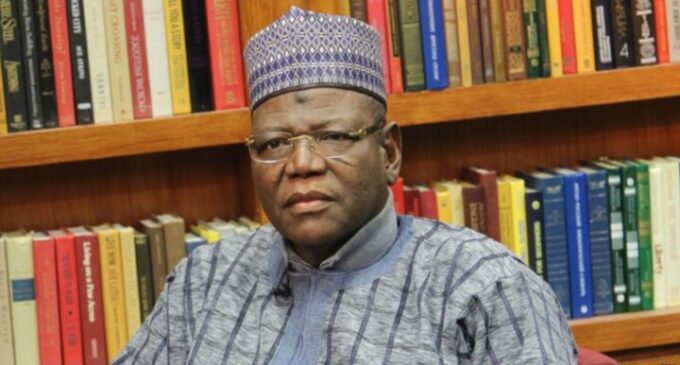EFCC asks s’court to nullify ruling discharging Sule Lamido of money laundering charges

The Economic and Financial Crimes Commission (EFCC) has asked the supreme court to nullify the ruling of the appeal court which discharged Sule Lamido, former governor of Jigawa, of the money laundering charges against him.
In a statement on Tuesday, Wilson Uwujaren, EFCC head of media and publicity, said the appeal court should have transferred the case rather than discharging Lamido of the crime.
Lamido, his two sons, Aminu and Mustapha, were standing trial on a 37-count amended charge of money laundering filed against them in 2015.
Other defendants in the case are Aminu Abubakar, business associate to the former governor, and four companies – Bamaina Company Nigeria Limited, Bamaina Aluminium Limited, Speeds International Limited and Batholomew Darlington Agoha.
The former governor, who governed Jigawa between 2007 and 2015, had allegedly abused his position by laundering money received as kickbacks from companies awarded contracts by the state government under his administration.
In September 2022, Ijeoma Ojukwu, the presiding judge, rejected the no-case submission filed by the defendants.
Ojukwu asked the defendants to open their case and Lamido headed to the appellate court to appeal the matter.
On July 25, the court of appeal discharged the former governor and his sons of the charges against them.
“In a notice of appeal filed at the supreme court and dated July 31, 2023, the EFCC is asking the apex court to set aside the whole decision of the court of appeal and order a return of the case to the trial court to continue and conclude same, on the grounds that the appellate court erred in law when it discharged the respondents,” the statement by EFCC reads.
“Among the four grounds of the appeal is the contention by the appellant that the court of appeal erred in law when it held that case was wrongly commenced in the Abuja division of the federal high court instead of Kano and proceeded to strike out the charge and discharge the appellants.
“Contrary to the decision of the appellate court, the appellant contends that section 98(1) of the ACJA, 2015 confers on the chief judge of the federal high court the power to transfer a case from one court to another where the transfer of the case will promote the ends of justice or will be in the interest of the public peace.
“According to the appellant, the record of the appeal or evidence before the court below showed that the instant case was commenced in the Kano judicial division of the federal high court but was transferred to Abuja for security reasons.”
‘CHIEF JUDGE CAN TRANSFER CASES’
The anti-graft agency maintained that the chief judge of the high court has the power to transfer a case from one judicial division to another.
“The power of transfer conferred on the chief judge of the federal high court by section 98(1) of the administration of criminal justice act, 2015 is not limited to transfer of a case from one court to another within a judicial division but extends to power to transfer a case from one judicial division to another where such transfer will promote the ends of justice or will be in the interest of public peace,” the EFCC added.
“There was also evidence and or proof of evidence before the court that some of the elements of the offences for which the respondents and others were charged occurred in Abuja.
“The appellant further avers that the “proper order to make pursuant to sections 15 and 23 of the court of appeal act cap. C36 laws of the federation of Nigeria 2004 and section 22 of the federal high court act cap. F12 laws of the federation of Nigeria 2004 were to have transferred the case to the Kano judicial division of the federal high court instead of striking out the charge and discharging the appellants.”
”The EFCC also asserts that the appellate court’s overlook of the failure by the respondents to insert the names of other parties in their notice of appeal was a grievous error, as order 7 rule 2(1) of the court of appeal rules 2021 states that “all appeals shall be by way of rehearing and shall be brought by notice of appeal which shall set forth the grounds of appeal, the exact nature of the relief sought and the names and addresses of all parties affected by the appeal.
“The said unilateral and arbitrary exclusion of some of the parties in the notice of appeal by the respondents without the leave of the court is not a mere irregularity but a fundamental vice which rendered the notice of appeal incompetent and invalid”.














There are no comments at the moment, do you want to add one?
Write a comment